Danielle Resnick, a David M. Rubenstein Fellow at Brookings, discusses her research on food security challenges in Africa. She notes the compounding global and regional crises that have worsened the food security situation, but also describes the creative ways that some African governments are addressing the problem. “Food system transformation, Resnick says, “means that we need to change how food is produced, traded, and consumed in order to promote healthy, sustainable outcomes for people, planet, and prosperity.”
- Subscribe and listen to Foresight Africa on Apple, Spotify, and wherever you listen to podcasts.
- Learn about other Brookings podcasts from the Brookings Podcast Network.
- Sign up for the podcasts newsletter for occasional updates on featured episodes and new shows.
- Send feedback email to [email protected].
TRANSCRIPT
[music]
ORDU: I’m Aloysius Uche Ordu, director of the Africa Growth Initiative at the Brookings Institution, and this is Foresight Africa podcast.
Since 2011, the Africa Growth Initiative at Brookings has published a high-profile report entitled Foresight Africa. The report covers key events and trends likely to shape affairs in Africa in the year ahead. On this podcast, I engage with the report authors as well as policymakers, industry leaders, Africa’s youths, and other key figures. Learn more on our website, Brookings dot edu slash Foresight Africa podcast.
My guest today is Dr. Danielle Resnick. Danielle is a David Rubenstein fellow with us here at the Global Economy and Development at Brookings. And she is a political scientist by training whose research focuses on the political economy of development with a regional specialization in sub-Saharan Africa. Danielle wrote a brilliant piece for us in Foresight Africa 2023 titled “Recurrent food crises underscore the need for food system transformation.” This will be the subject of our conversations today. Danielle, a very warm welcome to our show.
RESNICK: Thanks very much, Aloysius. A pleasure to be with you today.
ORDU: Great. Let’s start then, for the benefit of our listeners in Africa and across the world, could you briefly share with us your journey thus far to your current position as David Rubenstein Fellow here at Brookings?
RESNICK: Yes, I’d be happy to. Well, I went to Georgetown University’s School of Foreign Service many, many years ago as an undergraduate, and that’s where I first really fell in love with Africa. I did a certificate in African studies and also complemented that with an international political economy degree. And was going to go into the Foreign Service, did a tour in Botswana, and learned that my real passion was really in international development.
From there I did a master’s in development, worked at a U.N. organization called UNU University, United Nations University, World Institute for Development Economics Research. Pursued a Ph.D. at Cornell University in political science. And wound up for about ten years at the International Food Policy Research Institute in Washington, D.C., where I led the institute’s governance research program. And then in 2021, I decided I’d like the opportunity to develop some other skills and some other research pursuits, which is how I came to Brookings as a Rubenstein Fellow.
ORDU: That’s quite a journey. So, what inspired you to pursue a career as a political scientist, and what advice would you give to aspiring African youth and others elsewhere who aim to follow in your footsteps?
RESNICK: Yes. Well, as I just noted, I’ve had a longstanding interest in international development, but really a frustration, I think, in my early years working in this space that a lot of development economists sometimes fail to understand the political feasibility of their policy recommendations. And by the same token, a lot of political scientists sometimes don’t look at the policy relevance of their work. So, I was really quite interested in trying to marry those two interests, being politically relevant and policy relevant and in my interest in international development. So, that’s what really drove me to push more on the political scientist front, having already had some training in international development.
For others thinking of the same pathway, the main thing to remember is that for political science, there’s many opportunities and routes. You don’t just need to pursue an academic career if that’s not what your passion is. There’s obviously government service, working in think tanks, supporting non-governmental organizations. And so, sometimes this isn’t articulated to those who are kind of studying in the university system and pursuing a Ph.D. in this field, but to recognize that there’s lots of different routes. So, you can be creative, there’s no one route to follow.
And I think in terms of advice, really as I’ve gotten older I’ve really recognized more and more the importance of establishing and maintaining relationships with a broad range of individuals and organizations that work in your sphere of interest. So, you don’t just need to be talking to the same people that you were in the academic setting, but really reach out as much as possible and maintain those relationships, go back to people. It really makes a difference over your career span.
ORDU: But it just reminds me of one of the lessons in one of the many trainings at Harvard Business School when we were still at the World Bank many moons ago. And one of those trainings, we learned the importance of the three C’s: competence, credibility, and connections. And we were told that as you grow older and rise in the institutions you work in, one of the C’s becomes even more important, and it’s the connections. So, I agree with you, I agree with you wholeheartedly.
Danielle, mentoring, as you know, is very crucial for professional growth and success in life, not just in academics. Could you share with us your experience with mentors and how you approach the subject of mentoring others?
RESNICK: Yeah, that’s a great question. So, I’ve obviously had many mentors at school personally, professionally throughout the years. And I think those who’ve really made a big difference for me are ones who’ve encouraged me to push myself out of my comfort zone and to really take risks. I think in the field of research you can have a lot of self-doubt about your ideas. And you really need that support to push forward with your research topics, with your opinions, other areas of inquiry.
And then at the same time, you also need to prioritize because sometimes you feel like you need to be speaking about everything, working about everything. The thing that’s the most important in the news or in contemporary affairs, but you can’t be great at everything. So, you really need to prioritize and focus.
I think in terms of my engagement with mentors now or with mentees, I really try to see what is the kind of added advantage I can bring to the relationship. So, for example, I’ve been working with a master’s student in Zimbabwe. He had seen a paper I had written and he wanted to apply it to a case in one of the cities in Zimbabwe. So, I’ve been working with him on his survey questions, thinking about who to interview for the work. Likewise, been supervising a Ph.D. student at the University of Johannesburg in South Africa, looking at the impacts of SADC and ECOWAS on political affairs in the continent. They’re focusing on one country, for instance, or one kind of regional body. So, in both of these relationships my contribution is helping them see the bigger perspective, seeing the policy hook, or the theoretical angle.
But it’s always a two-way street. And I really love to learn from whoever I’m mentoring. I really think that you need to have that two-way engagement so that mentees appreciate that you also see the value that they bring to the relationship as well.
ORDU: Absolutely, I absolutely agree 100%. There’s a lot to learn from mentees, it’s very much a two-way street, as you rightly pointed out. Let’s now turn to your essay in Foresight 2023, which I alluded to at the top of this conversation. What are the major challenges to food security in Africa right now and in the coming year from your point of view? And to what extent do these challenges vary across different subregions of our continent?
RESNICK: Yeah, so, food security is a major challenge for Africa right now, and it has been for several years now. As you know very well, we’ve had these compounding crises: the war in the Ukraine, lingering supply chain shortages from COVID, and particularly in the Horn of Africa, now facing their fifth consecutive season of drought—it’s been the longest drought in 40 years. And so, all of this with the climate dimensions, the geopolitical dimensions all contributing to already high food and fertilizer prices even prior to the pandemic.
And so, this has particularly caused a lot of staple food prices in Africa to increase by on average almost 25% between 2020 and 2022. And even now that we’re in 2023, the FAO Food Price Index shows that we’re still really very high. We’re still only at our 2021 levels, we’re very far from getting our prices back down to where they were prior to the pandemic.
In terms of variations across the subcontinent, obviously where we have a concentration of conflict with these climate dimensions, that’s obviously where we’re seeing the highest levels of food insecurity and humanitarian crisis. So, the WFP has claimed that right now the number of hungry people in the Sahel and West Africa has really quadrupled over the last three years. And that’s obviously been linked to the number of conflicts we’ve seen in the region at the same time.
But we don’t have conflict everywhere in the continent, and that’s important to remember. And there is a lot of countries that have been doing pretty well. Zambia, for instance, has been doing quite well in recent years in terms of agricultural production. Even so much that it recently made a somewhat controversial decision to allow outsourcing of some of its land to Kenyan large-scale farmers for the production of maize in Zambia to be re-exported to Kenya. So, there’s a lot of kind of interesting creative ways that different countries and governments are working to try to deal with their different food insecurity challenges.
ORDU: Yes, in fact, the statement you made is very, very important. There might be challenges in the hotspots that you mentioned across the continent, but then there are also other countries that are doing very, very well. So, this takes us to the idea that we ought to be aware of the danger of a single story, because people elsewhere might just think that, oh, the whole of Africa they’re starving, they’re food insecure, that there are definitely a lot of countries that are not as badly affected as some of the ones in the fragile hotspots.
So, those several external crises, as you mentioned, contributed to growing food insecurity within the region in the recent years. Are there are some underlying structural factors and investment decisions that have exacerbated the situation, from your point of view?
RESNICK: Yes, absolutely. And as I noted, these high food prices, they were high even before COVID hit back in 2020. So, something was already going in the wrong direction.
I think there are several structural factors and investment decisions that have been problematic. One that’s pointed to a lot and I think it’s still very relevant is low commitment by governments to agricultural spending. So, 20 years ago under NEPAD’s Comprehensive African Agricultural Development Program, governments committed to the Maputo Declaration targeting 10% of public spending to agriculture.
And even 20 years later, we only have a few countries that have ever met that target. Many countries that did over the past two decades spent a lot of the money on visible outputs like fertilizer input subsidies. That was the main source of agricultural budgets, with much lower investment in agricultural research, development, and extension services. And extension services are really key because they help farmers learn about new seeds, new production techniques they may not otherwise be aware of. And so, what this really means is although Africa has 65% of the world’s remaining uncultivated arable land, agricultural productivity is still quite low in the region. So, that’s one of the structural factors.
Another one has been land. Land reform has been glacially slow across the continent, really hindering farmers from having secure property rights and feeling comfortable enough to make somewhat risky but high reward investment decisions in their land. And it’s also been seen as a source of conflict in places like Nigeria or northern Kenya, where you have these herder-pastoralists conflicts.
A third structural factor has been macroeconomic policies that have particularly hampered the food processing sector, which is really key for adding value to agriculture. So, for instance, foreign exchange rationing in Ethiopia or until just recently the use of multiple exchange rates in Nigeria, these types of macroeconomic policies can be a real disincentive for what we call “agripreneurs,” entrepreneurs within the agricultural sector.
And related to that is also the debt situation, growing debt distress in the region worsens access to credit for micro and small enterprises trying to get agribusiness or agro trading off the ground.
So, I think you’ve seen kind of all of these factors intersect then with the crises we’ve seen in the past three or four years to make the food situation much worse.
ORDU: You know, Danielle, I couldn’t agree with you more because as I travel around the continent, it’s amazing how much less attention is paid to extension services. I mean, in the old days, that was a major part of every ministry of agriculture in any African country. The extension services were very, very big because people were, as you know, shooting for the green revolution. The notion that if you have improved seeds, varieties of planting materials, if you have fertilizer and heavy sites, if you have irrigation water, particularly when the farmer needs it, not when the government, you know, decides to give it. And then the agronomic practices, extension services—this is the magic of the green revolution. And it’s very pitiful that extension services are not being given the attention they deserve in many, many of our countries. So, I really couldn’t agree with you more. It’s not surprising then, that we have so many green areas on the continent that have not seen the revolution.
You mention the concept of food system transformation in your essay in Foresight. Could you elaborate a little bit more on what the concept means and provide us with the sense of some priority actions that will be needed to make such transformation a reality?
RESNICK: Yes. So, “food system transformation” is a really common term that’s thrown around more and more these days. And at the end of July, there was the UN Food System Summit Stocktaking event, which was revisiting this concept of food systems transformation. It effectively means that we need to change how food is produced, traded, and consumed in order to promote healthy, sustainable outcomes for people, planet, and prosperity. And this is because agriculture is one of the biggest generators of greenhouse gas emissions. So, we need to find ways to make production more sustainable.
In addition, we’ve historically focused on food security and caloric intake with minimal attention to nutrition and diets. So, food system transformation really pushes us to think more about how we don’t just focus on providing communities with calories, but then we think about them having a diverse set of foods to consume.
And this is particularly a concern in Africa, where we’ve seen what we call the triple burden of malnutrition, where we have a combination of populations who are stunted, where we have a rising epidemic of obesity in urban areas, and we have a widespread problem with micronutrient deficiencies. And so, how do we tackle these three problems concurrently by thinking about more diverse diets?
And then the third dimension of food systems transformation is thinking about decent livelihoods, especially for women in marginalized communities. So, if we think, for instance, for women in Africa who constitute the main source of traders for fresh fruits and vegetables, but they often labor in very difficult circumstances, exposed to long hours and sunlight or flooding in the rainy season with really detrimental effects on their physical and mental health.
So, the attempt is really to think about a transformed food system that’s able to address these multiple goals concurrently: sustainable production, diverse diets, and decent livelihoods.
And, of course, it’s a tall order. So, I think the second part of your question was what do we need to do to do this? What do we need to prioritize? Well, a few things we need to think about is how we improve intersectoral coordination. So, that effectively means how do we improve cooperation across different government ministries? Food systems are spanning gender, trade, industry, environment, health, and agriculture, of course. So, how do you bring these different kind of government entities together and coordinate so they’re not implementing contradictory policies?
And then also, how do you think about what we call the vertical dimension of that relationship? So, this is kind of the relationship between national and local governments, especially in a variety of African countries, where responsibilities for agriculture and health and the environment have been decentralized to local governments. So, how do we make sure that there’s coordination between local and national government?
And then I think also how do we build up the empirical foundations to be able to track who is doing what? Right? Because in a food systems setting where everyone’s kind of responsible, no one’s accountable unless you have clear data where you can track what different government entities are investing in and where there could be tradeoffs to those investment decisions and complementarities. So, those are just a small set of, I think, priorities. Obviously, it’s a big agenda, but those would be three that I would highlight.
ORDU: Those are important priorities, indeed. And earlier on, you mentioned nutrition and stunting. It’s just one of those areas that Dr. Adesina, Akina Adesina as you know, the current president of the African Development Bank, is really, really laser focused on the issue of combating stunting across the continent through improvements in diets. So, this is clearly something to watch.
Danielle, I know you have a book coming out soon about the political economy of food system transformation, the subject you’ve just been explaining to us. Can you tell us a bit more about this book and what issues you are looking at in particular within the book and the relevance for Africa?
RESNICK: Yeah, well, thank you for highlighting that book. It will come out in October of this year with Oxford University Press. It’s a co-edited volume. Many great contributions. And the main focus of it is exactly as I was just saying—it’s easy to say what a transformed food system should look like, but much harder to understand how we’re going to get there, and how to really generate sufficient political will at the local, national, and global levels.
And so, this is really what the book looks at with a special recognition that beyond the difficulty of the task, we’re also operating in a very polarized world at the moment, where cooperation across the ideological spectrum is very difficult in several domestic contexts, and where collaboration within multilateral institutions is really hampered by the current geopolitical tensions.
And we know that food historically has been very politicized since the French Revolution. And it remains very charged, I think, for many different communities when we think about how we actually engage in policy interventions to improve the food system.
So, in the book, we really highlight four different areas of action, or we call them spaces, where we need to focus our efforts to better understand political economy constraints and opportunities. So, we talk about first, the incentives phase: what are the range of interest, ideas, institutions, and values that intersect each other, hamper or facilitate food policy decisions?
We talk about the mobilizational space. So, where are there coalitions, advocacy networks, opportunities to engage in different types of information or framing techniques?
We talk about the design space, ways of bundling or packaging different policy interventions to get more traction with potentially resistant communities.
And then finally, the adaptive space. So, this is thinking about how crises, policy, diffusion, and spillover effects can really generate a new set of actors and interests that shape, again, that incentive space I mentioned at the outset.
And I think for Africa there’s really a lot of different policy arenas where the political economy is quite salient at the moment. One in particular is, of course, genetically modified organisms. This is a very controversial issue in Africa. And we’ve seen this recently with President Ruto of Kenya saying at the end of December 2022 that he would allow GMOs for animal feed to be imported into the country. But then seeing resistance from civil society groups, from opposition parties, and other actors who really fear it will jeopardize trade within the East African community and with the European Union, even though it may strengthen Kenya’s ties with the U.S. under the proposed free trade area negotiations. So, a lot of different interests and incentives in that particular domain.
Another area we see it being relevant to is with regards to the farm-to-fork strategy under the European Union’s Green Deal, which has major implications for major exporters to the European Union, such as Kenya and South Africa.
Another policy area it’s really relevant is looking at sugar-sweetened beverage taxes. These are taxes that are applied to carbonated beverages, soft drinks, even some fruit drinks to try to discourage consumption because of their links with obesity and diabetes. We’ve seen Mauritius, South Africa, recently Nigeria implementing these sugar-sweetened beverage taxes. And they’re also a popular way for governments to gain revenue while serving a health function. But there’s a lot of conflicts then with the corporate sector and with governments’ industrial sectors to support sugar. Like South Africa has a sugar master plan, and so it’s been trying to promote greater production of sugar.
And so, there’s a lot of conflicts and tradeoffs. So, yeah, those are some some of the highlights of the book and I think some real implications for African agricultural and food system policies.
ORDU: That’s great. I look forward to your coming back to us after it’s been published so we can discuss the book further in the future. That would be great.
In your previous answer, Danielle, you highlighted the need for better coordination between national and local governments to implement food systems policies. I know you have a strong interest in how local governments function and that you have been working on a database to try and distinguish among different types of local governance systems in Africa. Could you share with us, our listeners more details about the database, please?
RESNICK: I’d be happy to. This is a database I’ve been working on for some time at Brookings. It’s called the Subnational Political Institutions in Africa Database, or SPIA for short. It draws on really hundreds of secondary resources from media outlets, Electoral Commissions, local governance acts, and journal publications in English, French, Portuguese, and Spanish. And among other variables, it’s really trying to track a range of different dimensions of local governance in the continent with data for at least 46 sub-Saharan African countries as of July 2023.
So, some factors it looks at is how are mayors elected in different countries, in different cities within the same country; the electoral system for choosing local representatives; local electoral turnout; whether there’s concurrency with national elections; and also provisions for female representation in local government institutions. So, it’s been a real labor of love that we’re hoping to release soon with an accompanying research report.
ORDU: So, why do you think such a database is needed? Who, for example, are you hoping to target with it, and what types of research and policy issues do you think it will help us to better understand?
RESNICK: Yeah, that’s a great question. I think it was really motivated by the fact that I see a real disconnect between discourse and reality about local and city government at the moment. I think on the one hand there’s a lot of excitement in Africa and globally about this idea of localizing the Sustainable Development Goals, about things like the urban food policy councils, highlighting the role of mayors and local governments in initiatives like the C40’s initiative on climate. So, several different initiatives that are highlighting the importance of local and city governments in international development.
And then on the other hand, none of these types of initiatives or narratives are grounded in a reality about how local governments actually function and how much they vary not even across countries, but even within the same country. And this is particularly true for Africa, where we really have a dearth of information about how local governments function. And I think they’re really ignored at multiple levels. They’re ignored by democracy and governance donors who disproportionately fund national elections. They’re ignored by national governments and their electoral commissions.
We found only, I think, ten electoral commissions in Africa that actually published the local election results. And they’re ignored by citizens themselves. Voter turnout at the local level is often very low in Africa, even though this is the level of government that’s most proximate to citizens. And probably their main experience with government is often with local authorities. And yet at the same time, the African Union has a charter on supporting decentralization and local governance. And a majority of countries on the continent have legislation about empowering local authorities.
So, the database is an attempt to shine some light on the diversity of institutional settings and hopefully kind of motivate both more kind of policy engagement and research about how these institutions really matter.
ORDU: Interesting. Interesting indeed. You mentioned the role of urban politics and how that affects service delivery in different African cities. Are there ways in which you are looking at the intersection between some of your work on food systems and your ongoing work on local governance and urban politics?
RESNICK: Yes, there are a few different areas where that really intersects. Most recently, I was appointed as one of ten members of the UN’s High-Level Panel of Experts on Food and Nutrition for their 2024 report on strengthening urban food systems.
ORDU: Congratulations on that.
RESNICK: Thank you so much. And I’m really hoping in this capacity to offer a deeper understanding of how these urban governance structures I was just alluding to in the previous question, how those structures and varying capacities and mandates of local governments can reveal which types of food system priorities different governments are deciding to emphasize in their food system strategies.
I also think there’s a real important intersection between urban politics and the informal sector, because the informal sector, particularly those who engage in traditional markets and street vending, those activities are heavily mandated by local governments. And urban politics and party politics can often interfere in terms of how that segment of the economy is governed. For instance, if informal traders tend to support the opposition party, they can face a lot of harassment, a lot of repression by the government, and also be deprived of certain services in terms of water, sanitation that can obviously have health implications. So, I see that several different intersections between the urban politics interest and also the food systems.
ORDU: I’d like to turn now, Danielle, to other work that you’ve done. For instance, in 2022, you published an article titled “Senegal’s Democratic Backsliding is a Threat to African Democracy.” What is the current political situation in Senegal, for the benefit of our listeners, please?
RESNICK: So, as of the beginning of July, Macky Sall, the president of Senegal, said publicly that he would not run for a third term in office. And I think for many observers of Senegalese politics, this was really good news because those of us who’ve been following the situation in Senegal over the last few years have highlighted that President Sall’s reluctance to say whether he would run for a third term has been a source of a lot of political contestation and violence. There has been repeated number of protests and riots in the capital, Dakar, particularly in the last two years, and these have been mostly linked to harassment or perceived harassment of some of the main opposition leaders, most notably Ousmane Sonko, who’s also a mayor in the region of Casamance in the south of the country.
And so, the view is that the president was continuing to persecute and prosecute opposition leaders to disqualify them from competing in next February, February 2024’s presidential elections.
But the fact that President Sall has now said that he will not compete in those elections has given everyone a collective sigh of relief that at least that particular dimension of Senegal’s kind of democratic consolidation is no longer a concern.
But there’s many other concerns that some of us who follow the country have in our mind. One is who will be President Sall’s chosen successor within his ruling party, which is known by the acronym APR. Will the elections be indeed free and fair and allowing opposition parties to compete freely? And I think also there are some questions about Ousmane Sonko and what is, in fact, his ideological stance? What are his actual policy priorities? Thus far, he’s known for being an opponent to the president. But now that President Sall’s kind of removed from the equation for the 2024 elections, I think there will be much more pressure on him to show what is his stand for rather than necessarily what does he stand against.
ORDU: I think you’re absolutely right. For those of us who follow the situation on the continent very, very closely, this is one of the most refreshing news so far this summer is President Macky Sall coming clean and saying he’s not basically competing for a third term. Because the message it would have sent as the chair of the AU himself turning around the constitution. So, I think this is great news and which we welcome it. I think two terms should be enough. But, we know we know that these politicians have other things on their minds. But the Senegalese news is very much, very much a welcome news.
So, as we wrap up, Danielle, one of your research papers focused on the shift from indirect to direct mayoral elections in African countries using case studies from Zambia, Senegal we were just talking about a minute ago, and Mozambique as well. Could you tell us more about your findings in that particular paper?
RESNICK: Yes, I’d be happy to. So, the article you’re alluding to actually drew on the database, the SPIA database I was mentioning earlier in which we uncovered there’s really only about five countries in the region that allow for direct mayoral elections. And what that means is where people can directly choose who they want to be their mayor. This is different than an indirect system where people will vote for a party and then the party that has the majority of seats on a local council decides who will be the mayor. And it’s usually the candidate who’s from the majority party.
And so there’s a lot of concerns about that system. There’s many cities globally that have that system. But globally, the world’s actually moved to having more direct mayors. And Africa’s a little bit unique in having so many countries, so many cities that are governed by indirect mayors.
So, we looked at this in Zambia in 2016, Zambia shifted from an indirect to direct mayoral system. It was in a new constitution that had been adopted that year. And so, we looked at the impacts thereafter in terms of candidate decision-making and voting behavior. And what we saw was it allows mayors to more directly reach out to citizens. For instance, there were town halls in some of the major cities like Lusaka, Kitwe, Ndola, where the mayoral candidates would directly talk to citizens about what they were going to do.
We saw it led to a lot more independent candidates emerged because they no longer need to be affiliated with the party in order to be selected as a mayor. So, it allowed for a little bit of rupture in the party system because there were so many independent candidates emerging.
We didn’t find, though, it led to many going to higher office. So, we look at the kind of subsequent elections in 2021 to see if candidates who had gone as mayor then trying to go to become a member of parliament. And we found that very, very few actually decided to do that.
The major impact on the party system caused the party that implemented this reform to try to revoke it just a few years later. So, in 2019, the ruling party at the time, the Patriotic Front, tried to institute a constitutional amendment to go back to the indirect system because it felt that there were now too many challenges, too many leaders emerging that were not as loyal to the party anymore.
And so, we showed through other cases like Senegal and Mozambique a similar trajectory. Mozambique, for instance, offers a nice contrast. It has had direct elections for many, many years since the early 1990s. But you saw a rise in more powerful mayors, including from third parties like the MDM. And ultimately in 2018, the two main parties in the country decided to reverse the institutional reform. And now Mozambique has gone back to an indirect system.
So, yeah, this is just kind of an example of how looking at how subnational institutions are designed can give us a little bit of leverage on a number of other variables, including party stability over time and voting behavior and even politicians’ career aspirations.
ORDU: Fascinating. Fascinating, indeed. So, as we wrap up, Danielle, what’s next for you in terms of your research focus, and why? I know a book is coming out soon. Any thoughts?
RESNICK: Well, it probably won’t surprise you that I’m going to continue to try to marry these interests in politics and food systems. So, one thing I’m trying to pursue is how to come up with an index of political risk to the food system. We have a lot of early warning systems that are based on crop cycles, production cycles, the climate. But I think what we’ve seen recently in places like Sudan and Mali, even places further afield like Myanmar, is that’s when you have a real breakdown of the political settlement that obviously puts a lot of stress on the food system as well.
But we often tend to be quite reactive. So, after we’ve had the crisis, then the humanitarian and development communities are trying to act to deal with refugee or food insecurity crises.
[music]
So, I would like to pursue a way to be a little bit more prospective, do some kind of future scenarios planning given what we know about the political systems and political settlements, and then how that would relate to potential food security outcomes.
ORDU: Great. Danielle, it’s been a wonderful pleasure speaking with you this afternoon. Thank you very much.
RESNICK: Thank you so much, Aloysius.
ORDU: I’m Aloysius Uche Ordu, and this has been Foresight Africa. To learn more about what you just heard today, you can find this episode online at Brookings dot edu slash Foresight Africa podcast.
The Foresight Africa podcast is brought to you by the Brookings Podcast Network. Send your feedback and questions to podcasts at Brookings dot edu. My special thanks to the production team, including Kuwilileni Hauwanga, supervising producer; Fred Dews, producer; Nicole Ntunigre and Sakina Djantchiemo, associate producers; and Gastón Reboredo, audio engineer.
The show’s art was designed by Shavanthi Mendis based on a concept by the creative from Blossom. Additional support for this podcast comes from my colleagues in Brookings Global and the Office of Communications at Brookings.
The Brookings Institution is committed to quality, independence, and impact.
We are supported by a diverse array of funders. In line with our values and policies, each Brookings publication represents the sole views of its author(s).


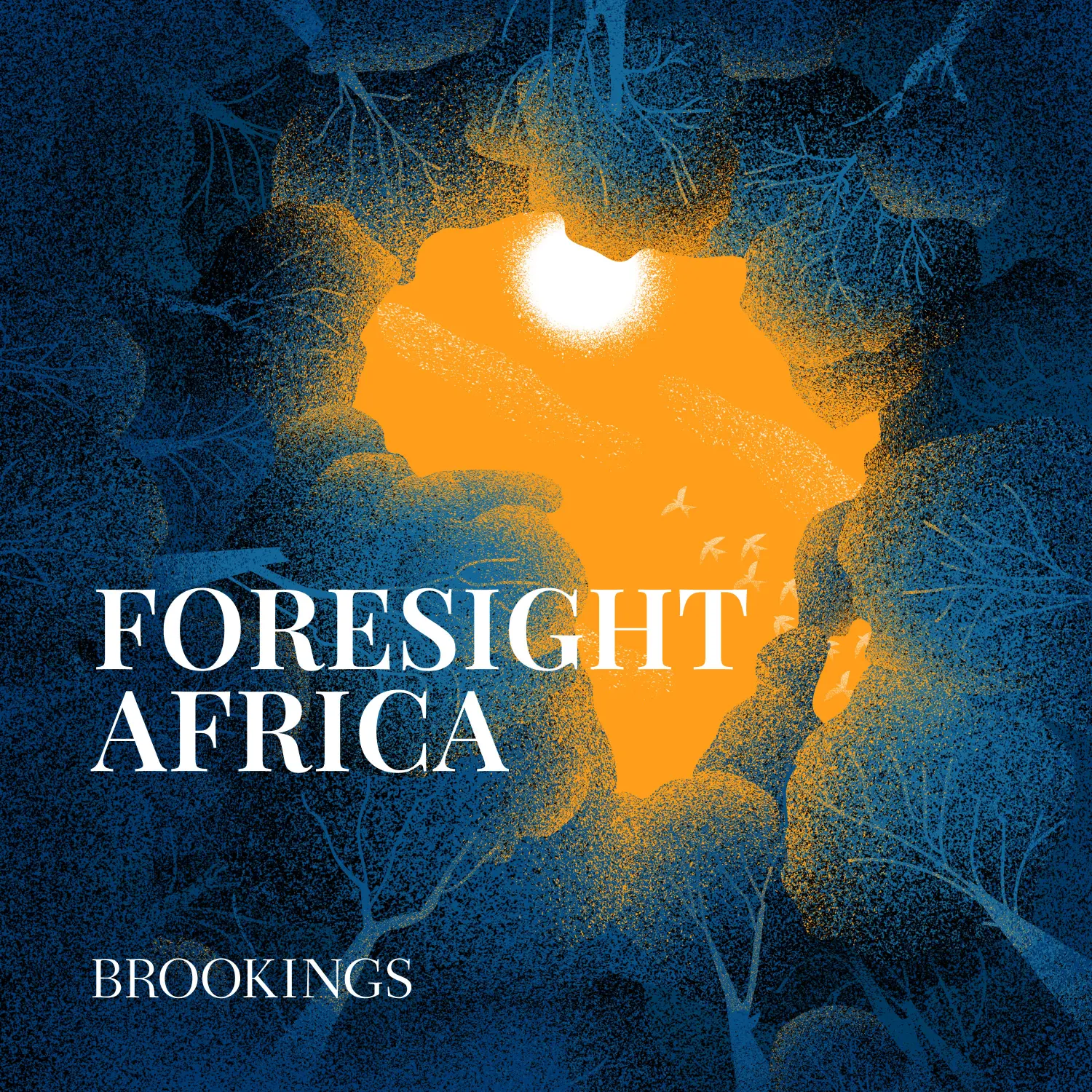
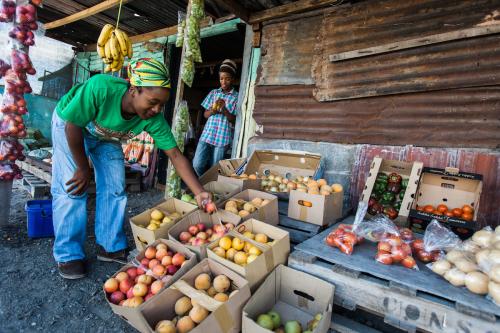
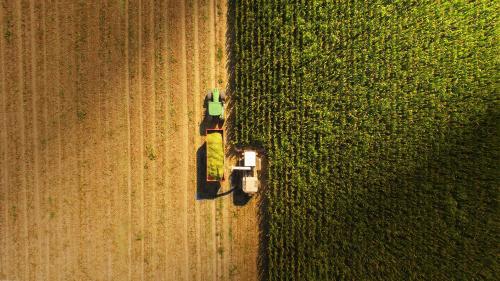
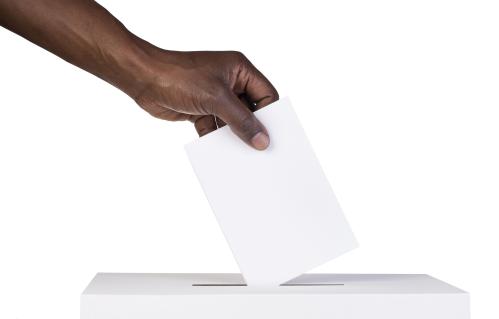
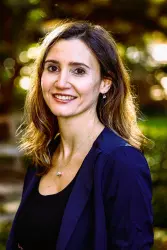
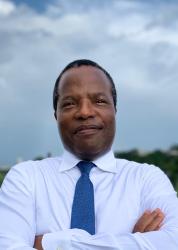

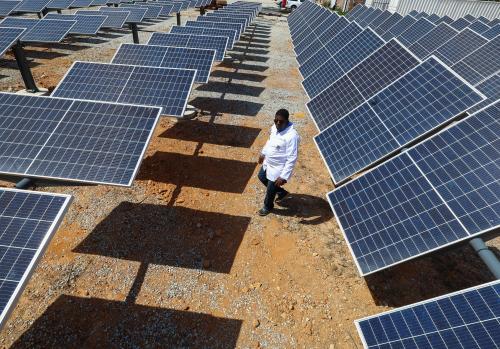
Commentary
PodcastAfrica’s food security challenge
Listen on
Foresight Africa Podcast
August 2, 2023